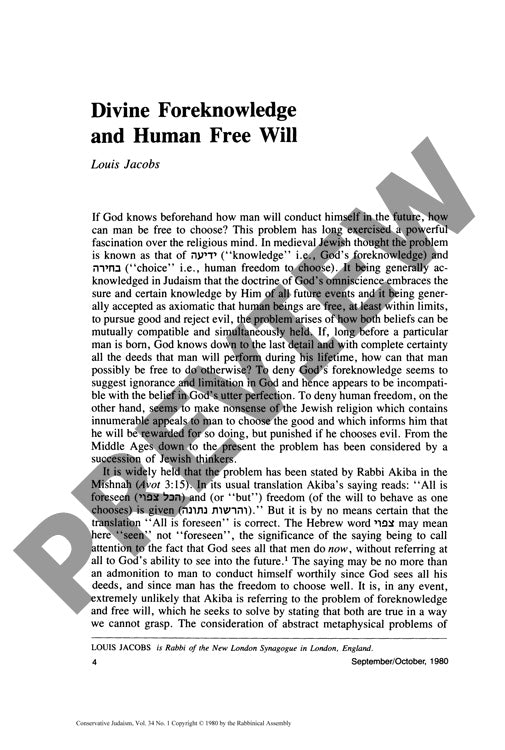Divine Foreknowledge and Human Free Will
Couldn't load pickup availability
How can an all-knowing God coexist with genuine human free will? This paradox consumed medieval Jewish philosophers, spawning centuries of sophisticated theological debate from the cryptic statement of Rabbi Akiba to modern hasidic thought. Through historical-philosophical analysis of primary texts and comparative examination of scholarly approaches, several distinct solutions emerge. Maimonides argued that divine knowledge transcends human comprehension, being identical with God's essence itself. Gersonides took the radical step of limiting God's knowledge of future human choices, while Crescas preserved divine omniscience by restricting human freedom. Later thinkers like Raabad, Perfet, and hasidic masters proposed alternative frameworks, including the "Eternal Now" theory where God perceives all events simultaneously rather than sequentially. Medieval Jewish philosophers largely maintained both divine omniscience and human moral responsibility as essential principles, driving increasingly nuanced reconciliation attempts. While no solution fully resolved the paradox, Maimonides' approach acknowledging human cognitive limits regarding divine knowledge proved most enduring. Modern Jewish thought has largely moved away from this medieval preoccupation, focusing instead on practical theological concerns or adopting non-traditional concepts of divinity that circumvent the original dilemma.

More Information
-
Physical Description
-
Publication Information
Published 1980
ISBN
-
Publication Credits
Louis Jacobs

